‘Backstage Management: The Invisible Do the job of Highly Successful Leaders’, by Charles Galunic
The late organisational theorist James March, who transpired to train Charles Galunic at Stanford, used to say that management was a delicate mix of “poetry and plumbing”.
Galunic’s book does not neglect the poetry. He writes very well about the responsibility of leaders to established persuasive visions for their groups and provide them while in the glare of the public highlight. But his emphasis is on the prosaic plumbing and electrics. The “creating, retaining and integrating” of elementary procedures these kinds of as establishing expertise, crafting lifestyle, managing contradictions — “are the essential, albeit backstage, sometimes invisible, work of small business leaders”.
This is not a book about how to deal with the distinct challenges of running out of a pandemic or by means of a recession — it was published ahead of lockdown. There is, having said that, a lot listed here to enable tricky-pressed leaders in a crisis, richly illustrated with examples from small business, activity and society.
For instance, Galunic indicates “scanning and sensemaking” — the approach of capturing indicators and decoding them — are vital ways to uncertainty. He also revisits one more Marchian plan about running the contradiction between “exploration” (like innovation and creation) and “exploitation” (the unlimited look for for even more effectiveness in existing locations of small business). The objective? An “ambidextrous” management design that balances “conflicting and normally paradoxical forces”.
‘Winning Now, Winning Afterwards: How Corporations Can Win in the Limited Phrase Though Investing in the Extensive Term’, by David Cote
When David Cote turned chief government of Honeywell of the US in 2002, he took in excess of from Larry Bossidy, a rough-nut manager, who had published a small business bestseller termed Execution: The Self-discipline of Having Matters Finished. It is a surprise, then, to find from his excellent and comprehensive account of how to operate an industrial small business that the firm Cote inherited “needed to execute better”. Powering the “facade” was “a teach wreck . . . on the verge of failure”.
As for having issues done, “just get it done” was what the finance department explained to the small business divisions when they have been having difficulties to make demanding quarterly targets. It led to “untrammelled brief-termism and a compromised strategic planning process”.
One lesson may well be not to read through textbooks published by ostensibly prosperous chief executives, but Cote’s could be the exception that proves that rule.
It incorporates its share of self-congratulation and relatively too lots of nods to previous colleagues. On the other hand, Honeywell had improved in price from $20bn to $120bn by the time Cote still left in 2018, so he has attained the correct to boast a small. Winning Now, Winning Afterwards is also rescued by just adequate emphasis on errors made and classes learnt, and a significant dose of really practical information on management, like how to ride out a recession.
Earlier mentioned all, Cote underlines how to try out to meet up with the central small business challenge of investing for the long run and yet attaining brief-phrase benefits, “accomplishing two seemingly conflicting issues at the exact same time”.
‘Future-Evidence Your Business’, by Tom Cheesewright
Even ahead of the world pandemic, businesses have been working in a entire world of constant modify and disruption. Tom Cheesewright writes that these disrupting traits can previous in excess of yrs, while there are other faster waves of modify layered in excess of these, enabled by globalisation and technological innovation.
Listed here the utilized futurist attracts on his experience of helping organisations to respond to innovation to give a survival guide for running a prosperous small business in an ever more complex landscape.
Aimed at businesses leaders, or individuals who aspire to direct, Cheesewright claims it is vital to “reshape your small business for an age the place adaptability to tomorrow’s challenge is a far better predictor of good results than being completely optimised to today’s conditions”.
It is neatly break up into three sections. First, he addresses how to composition a long run-proof small business, a approach that commences with a modify in mentality. The writer believes that recent brief-termism focuses on “immediate success” not “sustainable success”, so it is vital to reset the anticipations of what management appears like so the emphasis is on “adaptation”, relatively than “optimisation”.
The 2nd section guides leaders on “how to see the future”. Listed here Cheesewright supplies some very simple strategies for evaluating the in close proximity to and distant long run, which will enable leaders determine much more clearly a route for their small business and enable identify prospective obstacles.
The 3rd section appears at how businesses can be greatest well prepared for a “rapid response”. This focuses on determination making: how to make the correct selections much more quickly but also knowing that the greatest selections are not constantly the quickest. “Sometimes, slower, details-based mostly, strategic selections are necessary. Being aware of when to tell the big difference is essential,” he writes.
Successful determination making is also about empowering men and women and devolving some determination-making electrical power to individuals even more down the line.
The book is really comprehensive, to the issue — and only 150 webpages. And while the writer argues he are unable to warranty that your small business will be the one to survive and thrive he can “help you to increase the odds dramatically”.
‘The Art of Becoming Indispensable at Do the job: Win Impact, Defeat Overcommitment and Get the Proper Matters Done’, by Bruce Tulgan
This book is aimed at helping us all grow to be one of individuals “go-to people” that every firm has — individuals whose knowledge, effectiveness and uncomplicated way with colleagues is underpinned by organization expertise in their place of work.
It will, because of its title, particularly charm to individuals who already recognise on their own as “people pleasers” and whose MO at work is to get traction by means of co-operation and charm. But Tulgan’s uncomplicated to digest information (itself charmingly presented) is helpful to everybody: “Navigating collaborative interactions [at work] is not going absent. And carrying out that occupation really, really very well is how legitimate go-to men and women, in the real entire world, win real influence, conquer in excess of commitment and get the correct issues done.”
Tulgan, who is an adviser to small business leaders, is good on strategies for keeping away from declaring indeed when you will need to say no — keeping away from in excess of commitment, in other phrases, which is a massive prospective problem for the organisation’s go-to person. Due to the fact in a collaborative entire world, the essential to influence is to work across groups, in tune with your manager but not restricted to vertical determination making. Functioning horizontally or diagonally across other groups and tasks calls for technical abilities — and also men and women management.
And the essential to that? Not anticipating anything at all back. There is no quid pro quo for go-to men and women. “The legitimate go-to person does not continue to keep a tally sheet -real or imagined — of equal favours to be traded for inducing colleagues to get particular selections or steps. If you imagine in real influence, you serve others because which is what’s correct and which is what creates the most price for all people, in the brief phrase and the lengthy phrase.”
In restricted publish-crisis workplaces, being anyone dependable and competent is going to grow to be evermore vital. Tulgan’s book is timely, appropriate and attractive.
‘Designing your Do the job Life: How to Prosper and Improve and Locate Joy at Work’, by Invoice Burnett and Dave Evans
We are all having used to a new work-life equilibrium in an period of coronavirus lockdown. For lots of of us doing work from residence, information on how to locate which means and pleasure is welcome when the every day commute is a wander downstairs and the film Groundhog Day feels much more like a documentary.
Invoice Burnett and Dave Evans emphasis on the uncertainties of the modern day age and the will need to changeover between roles, which was an issue ahead of the coronavirus crisis. Nonetheless, the economic upheaval designed by the pandemic will no doubt make this book an attractive proposition for lots of men and women now taking into consideration a radical modify in life style or just questioning what work is all about.
The largest battle this book may well have is being picked from between the lots of titles already published about work-life equilibrium. But the authors try out to enable their readers in a really personable and practical way: Evans and Burnett current it as a abide by up to their previous book, Designing Your Life, about obtaining objective in your work. “This book is about making it real,” they generate.
One of these essential practical classes is to be delighted with what you have right now, not what you would like to have tomorrow. If that is not a valuable lesson for life in coronavirus lockdown, what is?
‘You’re About to Make a Terrible Blunder: How Biases Distort Selection-Making — and What You Can Do to Fight Them’, by Olivier Sibony
We have all made undesirable selections, but does that make us a undesirable leader? Not in accordance to Olivier Sibony, a professor and expert in small business technique, whose book utilizes behavioural science to clarify why all men and women, even wonderful leaders, are very likely to do the incorrect matter, normally because of cognitive biases.
This is a book filled with some intriguing, and terrifying, stories of determination-making failures. It will make dry scientific concepts in management idea, these kinds of as confirmation bias and heuristics, much more accessible. Some of these tales are very well recognised, these kinds of as video rental firm Blockbuster’s failure to obtain Netflix, but they are however beneficial in this context.
The book is aimed at corporate leaders with adequate self-recognition to realise that they make undesirable selections in section because of their possess biases, but it supplies reassurance and information to all of us with selections to make. It is also an uncomplicated read through with actionable information.
It may well not be good for individuals reading this book to get consolation from their failure, provided the higher price tag of undesirable determination making by firm heads. Nonetheless, insight into why we may well have made incorrect selections in the previous is surely worthwhile.
Probably the most comforting information of this book is that good results is in no way down to people today — the mistaken belief that propped up the cult of Steve Work opportunities at Iphone maker Apple. The flip aspect of this is that you are not a undesirable leader just because you make undesirable selections. And good determination makers do not act by yourself: they are the architects of good determination procedures, adopted by a crew.






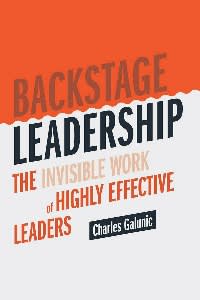
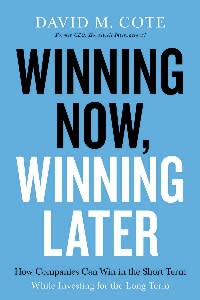

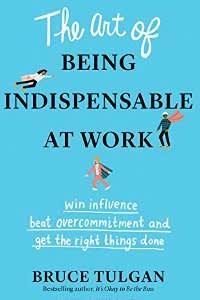
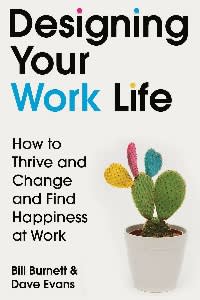
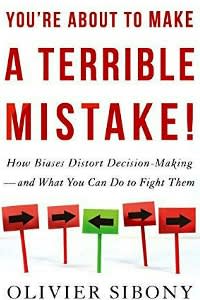

More Stories
How to Prevent Workplace Bullying in Your Business
You Probably Don’t Need a New Website
No sales pitch required – The Joy of Business